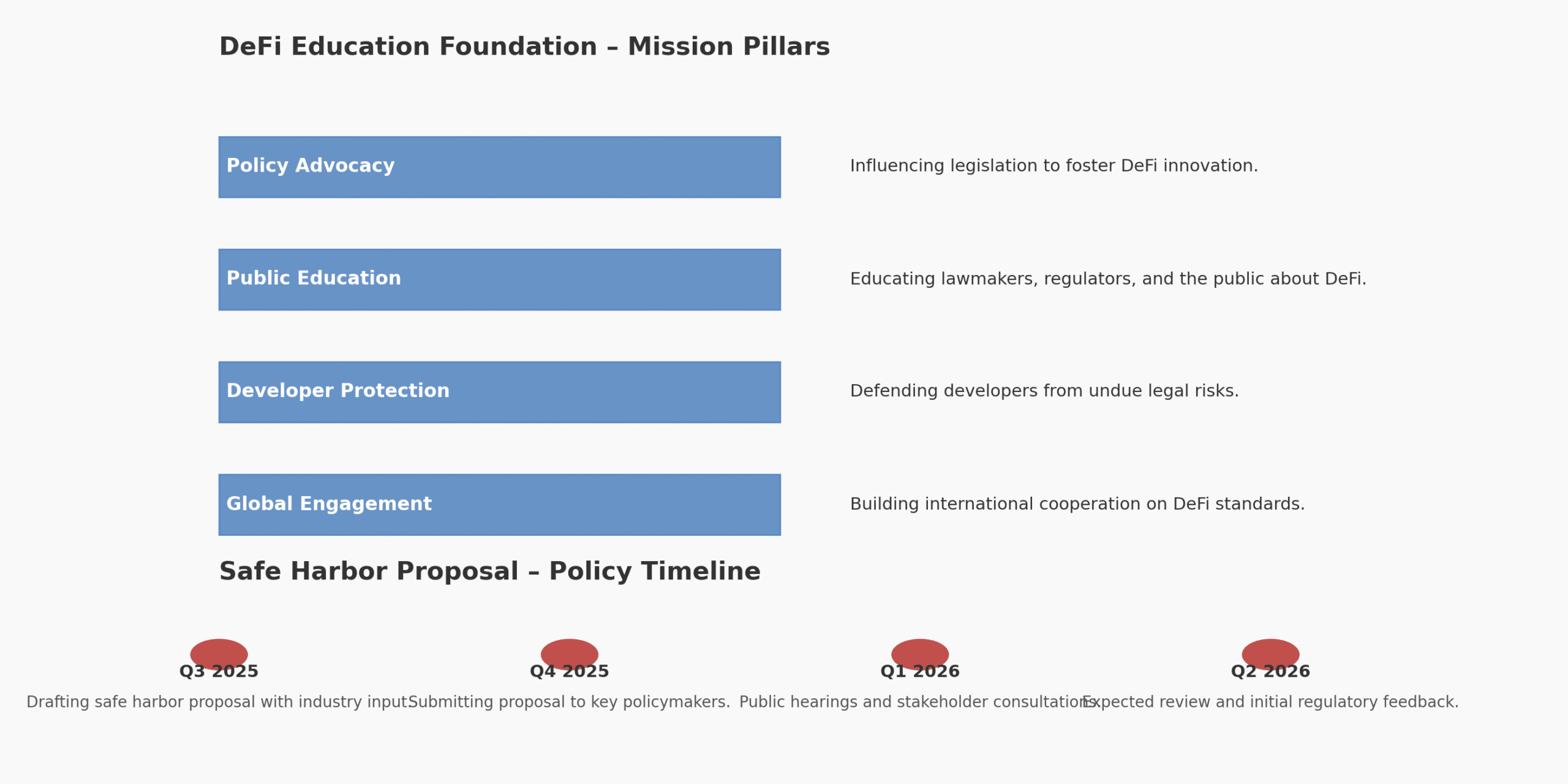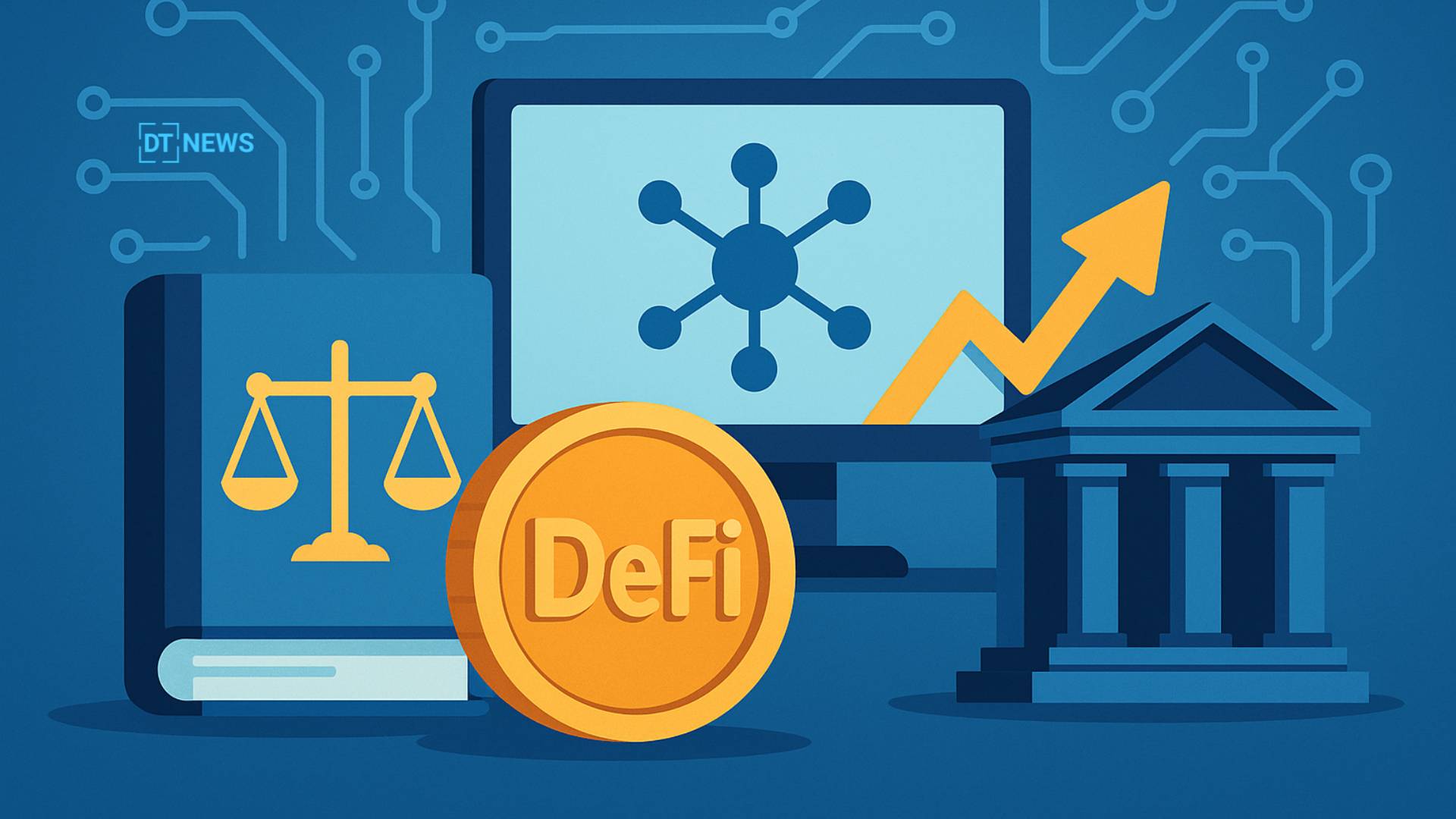The official creation of the DeFi Education Fund’s nonprofit foundation marks a significant step forward in the decentralized finance sector’s advocacy efforts. Designed as a 501(c)(3) organization, the new structure allows supporters to make tax-deductible contributions in both bitcoin and fiat, aligning financing techniques with the DeFi movement’s goals of openness and accessibility.
This launch marks a strategic shift for one of the industry’s most visible advocacy groups, giving the legal and financial foundation to support long-term initiatives in legislative engagement, developer protection, and public education.
Structured Advocacy for Enhanced DeFi Education
The foundation’s purpose is to educate politicians, regulators, and the general public about decentralized systems, why they are important, and how they might be integrated into the financial landscape without strangling innovation. By converting to nonprofit status, the organization may attract bigger institutional donations while providing tax advantages to donors.
A founding member stated, “We’re here to ensure that the conversation about DeFi is informed, balanced, and based on facts, not fear.” Our purpose is to provide policymakers with the knowledge they need to design laws that encourage rather than stifle innovation.
The Safe Harbor push signals the industry’s policy priorities
One of the foundation’s immediate aims is to advocate for a “safe harbor” approach, which would protect truly neutral DeFi apps from being labeled as regulated intermediaries. This would keep automated smart contract solutions, like as decentralized trading interfaces, from being encumbered with compliance rules designed for centralized custodians.

The desire for such safeguards comes as the decentralized finance industry confronts growing regulatory scrutiny. Proponents believe that without safe harbor laws, developers risk facing legal ambiguity, which stifles innovation and global competition. The foundation’s policy team hopes to make DeFi education important to this conversation, bridging the gap between technological intricacy and legal knowledge.
Funding Advocacy Using Crypto-Native Tools
By allowing tax-deductible cryptocurrency donations, the organization matches its fundraising strategy with its objective. Donors can make donations in Ethereum, Bitcoin, stablecoins, or traditional currencies, with all proceeds going toward DeFi education, developer defense, and policy study.
This financial flexibility reflects the decentralized ethos by reducing obstacles to global involvement and allowing anybody, from individual developers to large funds, to engage in the future of decentralized finance.
Leadership at the foundation combines legal skills, financial acumen, and policy experience to ensure that resources are allocated strategically. Their expertise in blockchain activism, digital asset legislation, and economic regulation lends credibility and breadth to the campaign.
Why This is Important for the DeFi Ecosystem
The foundation’s launch emphasizes a larger reality: decentralized finance is no longer an experimental niche. With billions of protocols and millions of users worldwide, it has evolved into a sector that requires formal representation in policy circles.
Investing in DeFi education is more than simply guarding against legislative overreach; it is also about fostering a long-term debate that guarantees the technology can scale responsibly. A policy analyst pointed out, “The difference between supportive regulation and restrictive law often comes down to whether the right information reaches the right people at the right time.”
Conclusion
The founding of the DeFi Education Fund’s nonprofit foundation represents a watershed moment for the industry. By combining structured funding, policy lobbying, and targeted DeFi education, the group positions itself as a leading voice for a technology that is changing the norms of finance.
The foundation’s work, whether in defining legal frameworks or defending open-source innovation, has the potential to set the future of decentralized banking over the next decade.
FAQs
Q1: What is the DeFi Education Fund’s new foundation?
It is a 501(c)(3) nonprofit supporting DeFi policy advocacy, public education, and developer protection.
Q2: Why is nonprofit status important?
It allows for tax-deductible donations, attracting broader and more sustainable funding.
Q3: What is the “safe harbor” proposal?
A framework to exempt neutral DeFi applications from broker-dealer classification and heavy regulation.
Q4: How can people support the foundation?
By donating in crypto or fiat, funding DeFi education and advocacy efforts.
Glossary
DeFi (Decentralized Finance) – Financial services built on blockchain technology without intermediaries.
Safe Harbor – A legal provision offering protection from certain liabilities or regulations.
501(c)(3) – A U.S. tax-exempt nonprofit organization recognized for charitable purposes.
Smart Contract – Self-executing code that runs on a blockchain, enabling automated transactions.
Policy Advocacy – Efforts to influence public policy and legislation.
Stablecoin – A cryptocurrency pegged to a stable asset like the U.S. dollar.



















































































































